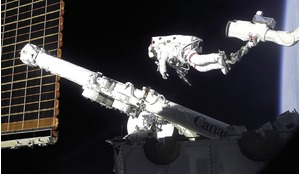ROOM is an open forum for comment and opinion - and actively encourages contributions. To promote debate, discussion and inspiration we regularly publish commentaries and opinions by space leaders and those involved directly or indirectly in aerospace and space exploration. Here, Dr Michael Leggett analyses the possible effects of Britain leaving the EU (‘Brexit’) on the long-established cooperation of the UK and Europe in space.
“We are leaving the European Union not Europe”, an often-repeated phrase since the UK Referendum of 23 June 2016, and one which might offer some comfort to those who are participants in organisations outside the European Union (EU), including the European Space Agency (ESA). However, the distinction between the EU and intergovernmental organisations such as ESA is not always clear cut and the way ahead might not necessarily be plain sailing.
ESA is not part of the EU; it has 22 member states, not all of which are EU members. Norway and Switzerland are members of ESA, for example, but not members of the EU. Furthermore, the EU currently has 28 members (including the UK), not all of which are members of ESA.
On the face of it, Brexit should not directly affect the UK’s membership of ESA. However, there might be indirect effects as a consequence of ESA-EU programmes and depending on the final nature of Brexit.
The EU itself is a major contributor to ESA, principally for the Galileo global navigation satellite system (GNSS), which began operations in December 2016, and the Copernicus Earth observation programmes. Funded and owned by the EU, ESA acts as design and procurement agent for Galileo on behalf of the European Commission. Copernicus is also led by the EU.
Read more of Michael Leggett's analysis of what Brexit means for the UK's space program in the full version of the article, available now to our subscribers.














